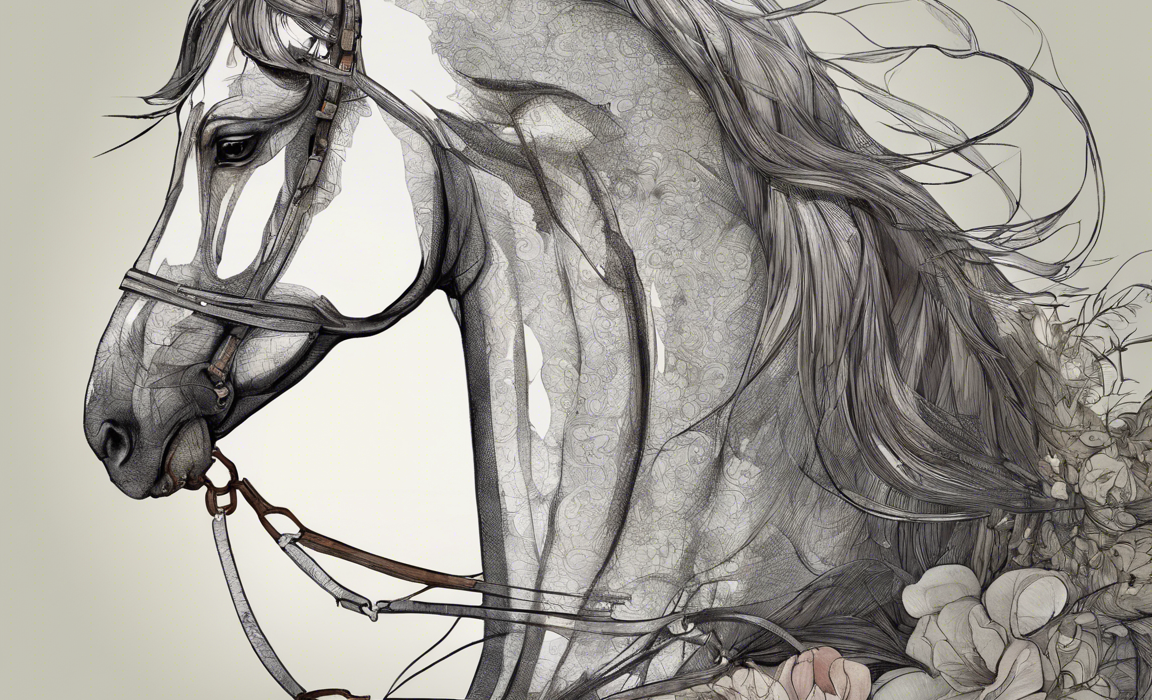Zoophiles are individuals who have a deep emotional connection with animals, often forming strong bonds with them. The bond between humans and horses, in particular, has a long and storied history that dates back thousands of years. This unique relationship has been the subject of art, literature, and mythology, showcasing the deep emotional and spiritual connection that exists between humans and these majestic creatures.
This comprehensive article aims to explore the art of zoo, focusing on the intricate and profound bond that exists between humans and horses. We will delve into the history of this relationship, its portrayal in art and literature, and the therapeutic benefits that it offers. Additionally, we will discuss the challenges and controversies surrounding zoophilia and provide insights into how this bond can be nurtured in a healthy and ethical manner.
The Historical Bond Between Humans and Horses
Horses have been a crucial part of human civilization for centuries, serving as transportation, companions, and even partners in various activities such as hunting and warfare. The domestication of horses marked a significant milestone in human history, enabling us to travel faster and farther than ever before. This close interaction with horses has fostered a deep emotional bond between humans and these animals, leading to the development of mutual trust and respect.
In ancient civilizations such as Egypt, Greece, and Rome, horses were revered for their beauty, strength, and grace. They were often depicted in art and mythology as symbols of power, freedom, and nobility. The ancient Greeks, for example, believed that horses were divine creatures, with the horse god Poseidon being one of the most revered deities in their pantheon. This reverence for horses is reflected in the numerous artworks and sculptures that have survived from these ancient civilizations, showcasing the deep admiration and respect that humans had for these animals.
The Artistic Depiction of the Human-Horse Bond
Art has always been a powerful medium for expressing emotions and ideas, and the bond between humans and horses has been a recurring theme in various artistic works throughout history. From paintings and sculptures to literature and music, artists have sought to capture the essence of this unique relationship and convey the deep emotional connection that exists between humans and horses.
One of the most famous examples of this is the ancient Greek sculpture “The Charioteer of Delphi,” which depicts a young charioteer standing next to his horse in a moment of quiet contemplation. The sculpture beautifully captures the bond between the two figures, showcasing the mutual trust and respect that exists between them.
In literature, horses have often been portrayed as symbols of freedom, strength, and loyalty. Books such as “Black Beauty” by Anna Sewell and “War Horse” by Michael Morpurgo have highlighted the emotional intelligence and resilience of horses, showcasing their ability to form deep and meaningful bonds with humans.
The Therapeutic Benefits of Equine-Assisted Therapy
In recent years, the therapeutic benefits of the human-horse bond have gained recognition, leading to the development of equine-assisted therapy programs. These programs utilize the unique qualities of horses to help individuals improve their physical, emotional, and mental well-being.
Equine-assisted therapy has been shown to be effective in treating a wide range of conditions, including anxiety, depression, PTSD, and autism. The presence of horses has been found to have a calming and grounding effect on individuals, helping them to develop trust, self-confidence, and emotional awareness.
Horses are highly sensitive animals that can pick up on subtle cues and emotions from humans, making them excellent partners in therapy. By interacting with horses, individuals can learn to communicate effectively, set boundaries, and build healthy relationships based on mutual respect and trust.
Challenges and Controversies in the Human-Horse Bond
While the bond between humans and horses is often portrayed in a positive light, there are also challenges and controversies associated with zoophilia. Some individuals may form unhealthy or inappropriate attachments to horses, leading to issues such as neglect, abuse, or exploitation.
It is essential for individuals to understand and respect the boundaries of the human-horse relationship, ensuring that the well-being of the animals is always a top priority. Proper care, training, and supervision are essential to fostering a healthy and ethical bond with horses, ensuring that both parties benefit from the relationship.
Frequently Asked Questions (FAQs)
1. What is zoophilia, and how does it differ from a healthy human-animal bond?
– Zoophilia refers to an emotional or sexual attraction to animals, while a healthy human-animal bond is based on mutual respect, trust, and companionship.
2. How can I form a strong bond with my horse?
– Spend time building trust through gentle and consistent training, proper care and grooming, and regular interactions that promote mutual understanding.
3. Are there any risks associated with equine-assisted therapy?
– While equine-assisted therapy can be beneficial, it is essential to work with trained professionals to ensure the safety and well-being of both the clients and the horses.
4. What are some signs that indicate a horse is happy and content?
– Some signs of a happy horse include relaxed body language, a soft expression, engaging in playful behavior, and a healthy appetite.
5. How can I contribute to the welfare and conservation of horses?
– Support reputable horse rescue organizations, practice responsible horse ownership, educate others on proper horse care, and advocate for ethical treatment of horses in all situations.
In conclusion, the bond between humans and horses is a truly remarkable and profound relationship that has stood the test of time. Through art, literature, and therapy, we can gain a deeper understanding of the emotional and spiritual connection that exists between these two species. By fostering a healthy and ethical bond with horses, we can enrich our lives and theirs, creating a harmonious partnership based on trust, respect, and love.


